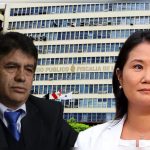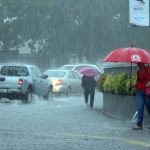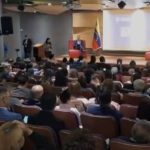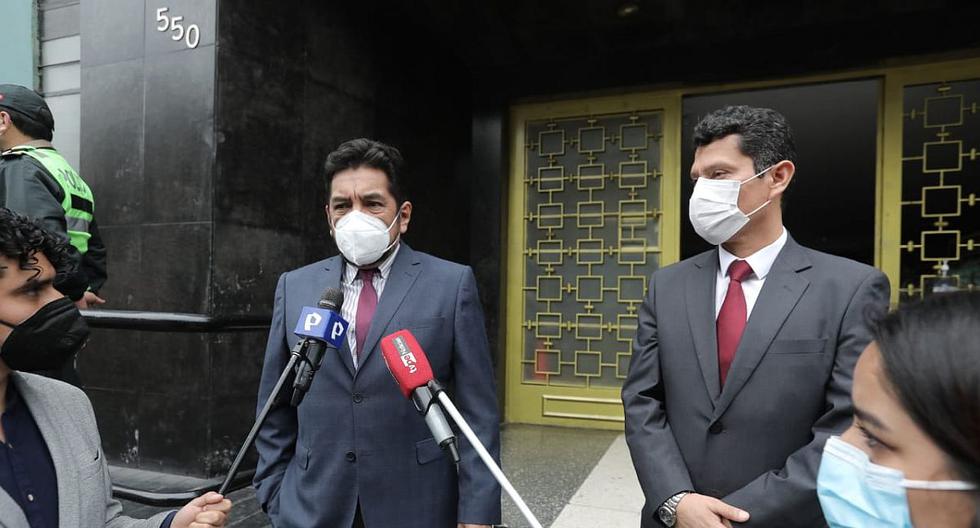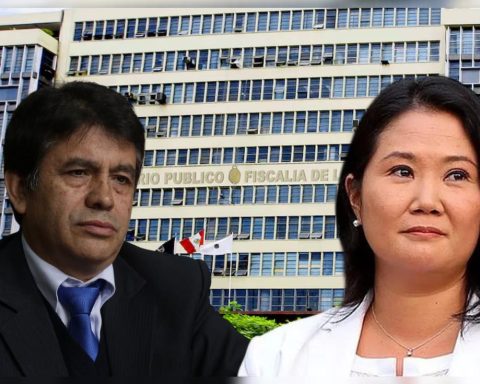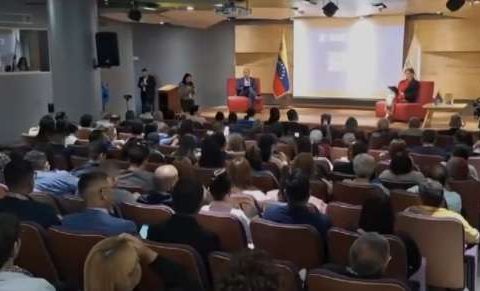Rafaela Guanes de Laíno, is a candidate for the Senate for the Liberal Party (PLRA), list 9, option 6. She has a degree in Educational Sciences, a master’s degree in political science and has other studies related to environmental issues, such as environmental journalism and others. plus. She has been a liberal affiliated for years by “tradition and decision” in her own words. She is married to the liberal leader and former senator Domingo Laino, she has four children, seven grandchildren and it is the first time that she is running for an elective position for the party.
Is it your first application?
It is the first time that I am running for the party. I was always very active and worked for other candidates. I really like what is related to training and I have been presiding over a foundation of my family for years (Manuel Gondra). It’s the first time I’m doing election campaign work by myself. The reasons were many, first of all, that at some point one has to make the decision and time passes. It was also important for me to have participated in the end of the conquest of an old struggle of Paraguayan liberal women, which is parity, and I received many calls to join.
How did this step into the political arena come about?
Entering the political field is not easy. Let’s say that this issue of preferential voting has its positive and negative sides. On the one hand, the participation of people to decide which of the list is their preference is positive. But that also implies other variables that are not easy to do. One is the difficulty of working as a team, which I am seeing. It would be interesting if a party that has a list of candidates can put together a work team so that the public can see the offers. The accent on the theme that each sector would put. It is an all against all. That was what decided me.
Did you run into some difficulties?}
Yes, it presents many new challenges. For a long time I have thought that the democratic system should be debated, in adjustments for improvements. The democratic scheme is not a rigid scheme that has been modified since the time of the Greeks, where only the owners, whites and others voted. Without going any further, until 1961, in Paraguay, democracy was incomplete because women did not vote. What kind of democracy was he talking about? I had read a lot about the moments in which democracy was expanded, because it is based on inclusion, if it is not inclusive it is not democracy. The great liberal thinkers did not include liberals in their conquests for popular rights. It was incomplete in Paraguay until 1961.
How do you see the incidence of dirty money in politics?
The road between the popular will and the result of the ballot box is full of problems, there are a lot of stones. That is getting worse due to the economic and financial factor, it is permeating the popular will a lot. In addition to other practices similar to the prebend, distribution of benefits. The candidate who does not manage quotas of power to distribute perks, who does not have an institution where he can distribute medicines or whatever, and does not have economic and financial power to be doing more than political transactions. If I cannot cover the entire territory, I have to be able to have a relationship with regional candidates. But that relationship is supposed to be based on political coincidences.
Who are part of your team?
We work with Marlene Orué (list 9, option 6), candidate for deputy for Asunción, also with Margaret Bóveda (list 9, option 2), teacher and candidate for deputy for President Hayes (Chaco). We are supporting Luz Cristaldo (list 9, option 6), a candidate for the Departmental Board. We also work with Pilar Abente, a lawyer and member of the PLRA board (list 9, option 4). She is a candidate for deputy for Asunción. We are trying to incorporate candidates for departmental councils. If the departmental councilor works, the government will work, it is the link with the citizens.
What will be your lines of work?
It is not an easy question to answer. My role will be to represent the diversity of opinion. That’s what I’m seeing when one begins to define something. It seems to me that it is necessary first to listen and jointly develop the answer to the problem that is created. Almost 80% of the population do not feel represented by Parliament. Meanwhile, on a day-to-day basis, citizens have other problems. For me the first thing is to listen. It is necessary to have today, urgent or emergency proposals.






